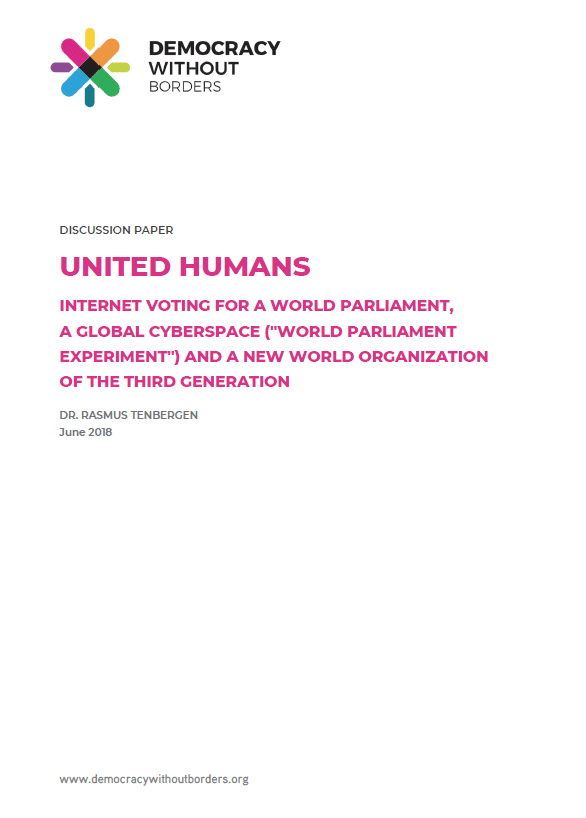While the Campaign for a United Nations Parliamentary Assembly (UNPA) remains by far Democracy Without Borders’ most important project and most preferred way towards developing a more democratic world order, this does not contradict the importance of exploring other possible approaches. On the contrary: the thinking behind this paper is that different approaches may complement each other and increase the likelihood of success.
Among other things, the mission statement of Democracy Without Borders states that the organization “provides assistance relative to research, development, and implementation of democratic instruments and processes, among them for example innovative forms of citizen participation such as models of electronic, direct or ‘liquid’ democracy”. Two projects aiming in this direction are touched on in the paper: An internet tool for global debate, voting and elections (GDVE-it) which is a main aspect of the proposed model and – partly related to it – a global citizens’ initiative.
As a combination of representative and direct democracy, the model presented in the paper describes an innovative and radical approach towards mobilizing the world’s citizens in support of global action and including them in global decision-making. It is suggested that a citizen-elected World Parliament based on internet voting and virtual electoral constituencies is to become the centerpiece of a renewed world organization that succeeds today’s United Nations.
This new world organization eventually would consolidate the existing structure of the United Nations system and allow for the adoption and implementation of universally binding global regulation in clearly predefined areas of global concern.
In parallel to the World Parliament there would be a global cyberspace, a World Parliament Experiment, that would facilitate an optimum level of democratic involvement of the world’s citizens. In addition, citizen participation would be enhanced by the instrument of a Global Citizens’ Initiative and by the power of the World Parliament to call for global referenda.






